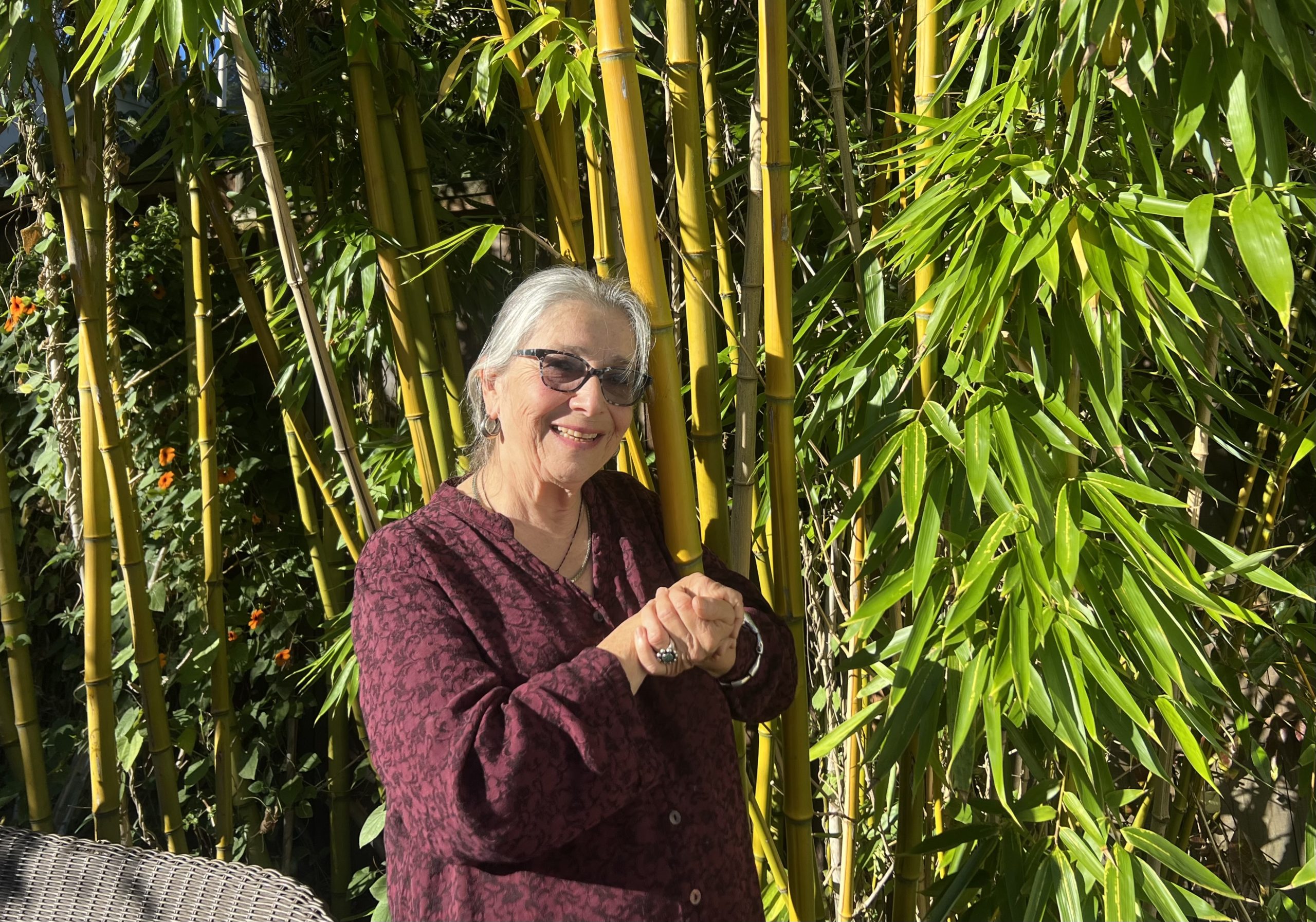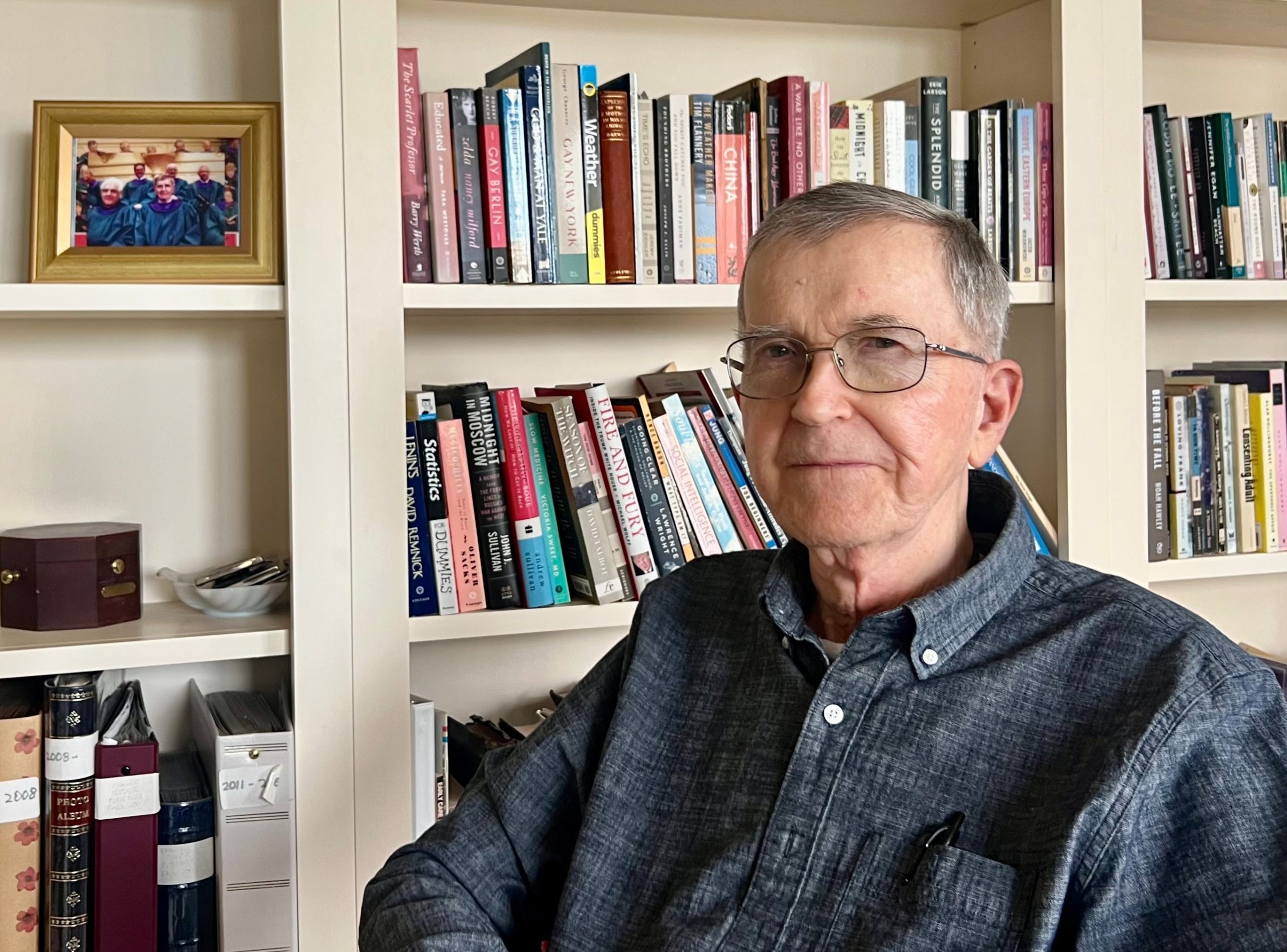Under cover of Self-Help for Elderly job, fund director is Cantonese Opera star
Josephine Ma had been explaining her agency’s nutrition programs when she suddenly stood up. “Wait, I’ll be right back.” A minute later she returned holding a stack of photographs. One showed a dainty maiden with a chalk-white face, dark black eyebrows and lashes, vivid red bowed lips and a magnificent headdress.
“Here’s me, and here, and there’s another one,” she said. Ma is the fund development director at Self-Help for the Elderly, a multi-county agency offering a variety of programs and services. After working hours, the 72-year-old Ma transforms into the female lead in the Duen Fung Ming opera troupe, the local company that performs at Self-Help’s annual winter benefit.
Ma not only stars in the productions, she also created the troupe and produces and directs the shows. It’s a role she’s held for the past 34 years, ever since moving to the Bay Area.
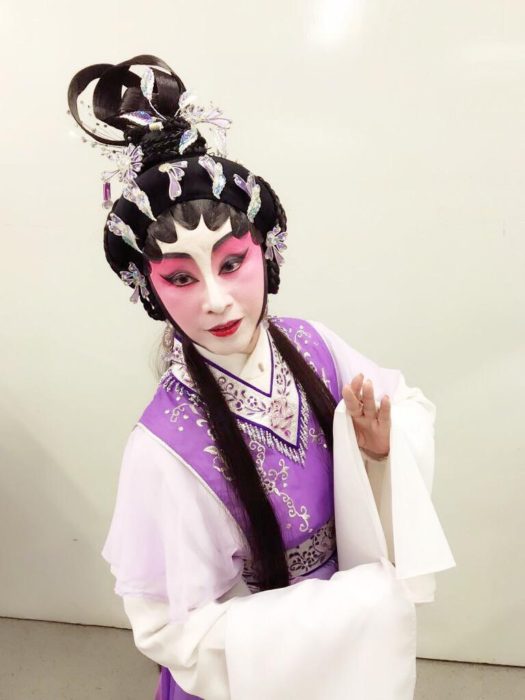
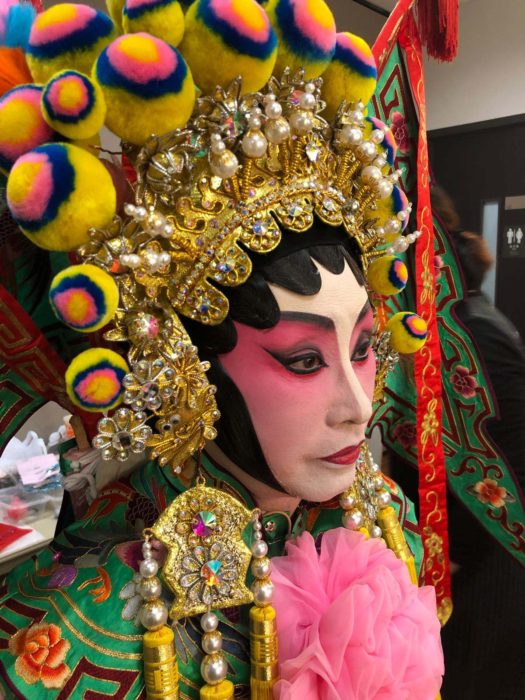
Ma’s troupe is joined in these annual performances by the renowned Hong Kong opera troupe, the Sun Kwan Ying Production Company. “Siu Ming Leung, the male lead, is an idol in Hong Kong,” Ma said, pointing to another photo in the stack.

There has been considerable interchange between the two troupes. For the past three winters, Ma has travelled to Hong Kong to perform with the company. But she worries the current political situation will keep her from travelling there next year.
A choice between piano, dance or opera
Ma was born in Hong Kong and began studying Chinese opera when she was 11. “My parents didn’t want us hanging around the house over vacation, so they gave us a choice: piano, dance or Chinese opera. I chose Chinese opera. We studied movement, exercise, dance and voice. I also had private lessons. You could say, I jumped into it as a hobby.”
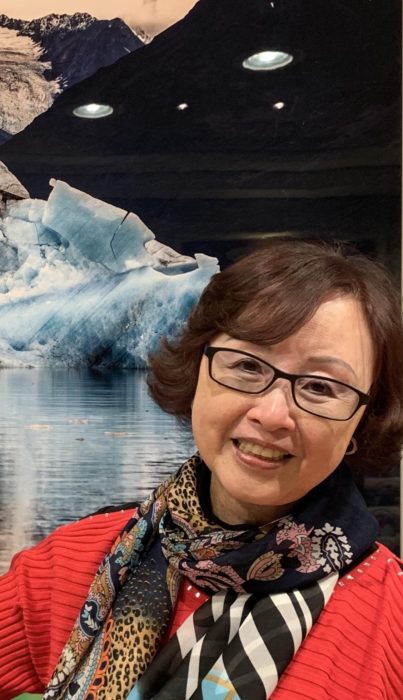
Those classes continued during the school year. While her parents appreciated her passion, when Ma reached high school age, they sent her to boarding school in Somerset, England. “They wanted me to have a well-rounded education. They didn’t want me to prematurely choose Chinese opera as a career.”
Ma continued her studies in England, and after two years of college went to work for Cathay Pacific Airlines. In the late 1980s, she moved to the Bay Area. But she never stopped studying opera.
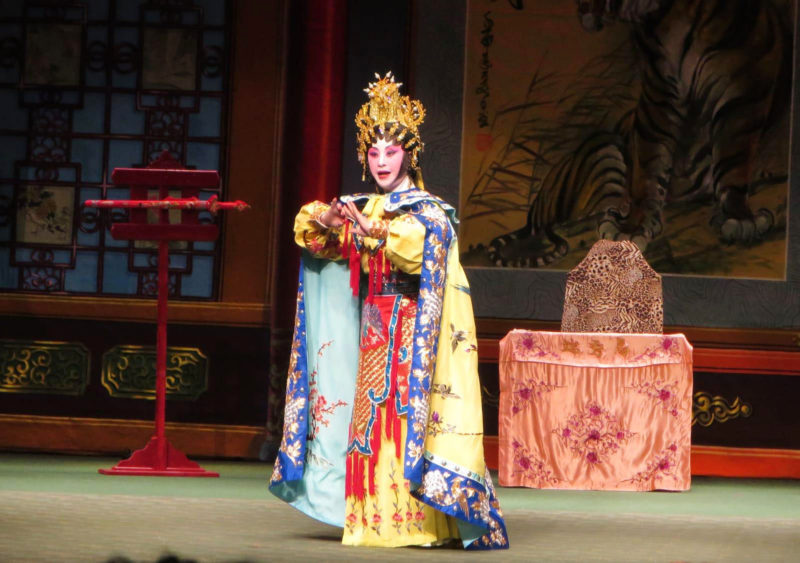
Chinese opera is renowned for its extravagant sets, colorful costumes, painted faces, high voices, and the stylized movements of its performers. Most stories rely on recognizable character types: the villain, the hero, the refined lady, the coy maiden, the charming serving girl, the concubine, the soldier, and the clown, and are based on tales from Chinese history and mythology.
But even audiences unfamiliar with the story can understand the plot. After numerous twists and turns, and some comic and acrobatic interludes, good always overcomes evil.
“While Chinese opera has genuinely popular roots and appeals to all segments of society,” Ma said, “it’s been difficult recruiting Westerners and younger American-born Chinese to their performances.”
In some ways, Chinese opera is like Western opera, said Anni Chung, CEO and president of Self-Help.
Universal tales of heroes and heroines
“They tell love stories with heroes and heroines. I just wish more Americans who love opera would attend; they’d recognize the plots and they could see the beauty of these pieces.”
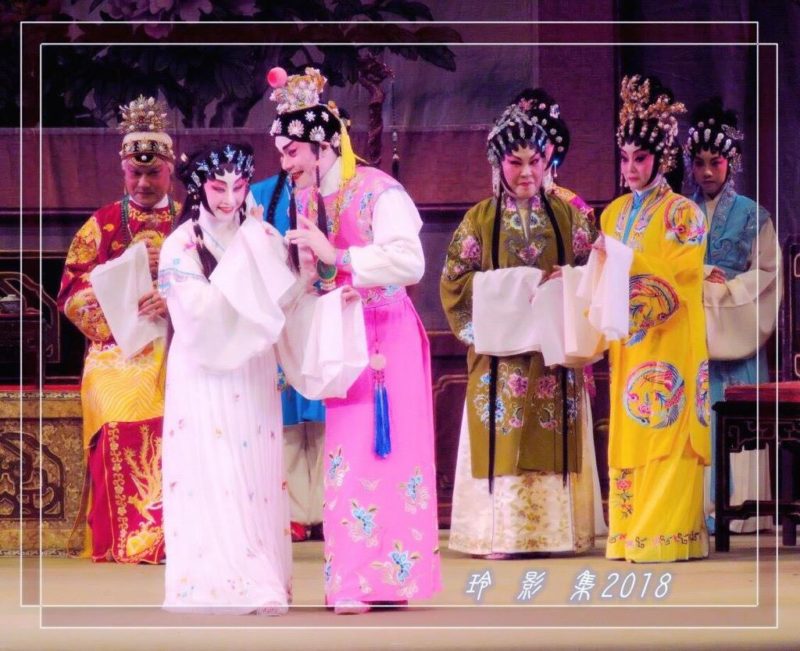
Two years ago, in an effort to make these operas easier to understand, the Self-Help board introduced pre-performance talks, simultaneous subtitles in Chinese and English, and included a plot synopsis in every program book.
In China, opera was initially performed outdoors or in teahouses, where audiences were expected to enthusiastically cheer the heroes and boo the villains. While the venues have changed, and the audiences at Self-Help’s performances are less raucous, Chung said she sometimes sees “older audience members humming along quietly so they won’t disturb the performance. The operas contain popular songs, and many of the older people know the words.”
The troupes perform different operas each year. On three dates and in two different venues next month, they will present The Legend of Purple Hairpin, Princess Cheon Ping, and Two Princes Vie for Princess Phoenix. The operas are performed in Cantonese, with English and Mandarin subtitles.
Fond memories for Supervisor Yee
San Francisco Supervisor Norman Yee, the honorary chair of this year’s event, recalls attending opera performances with his grandmother. “Growing up, I never understood a word of it, but the sound of it brings back good memories of going with my grandma. I appreciated Chinese opera even more when I had opportunities to see it in Asia, and to learn the stories behind it.
“I would like to bring my grandchildren to share with them the same experience that I had when I was younger, but at three, they may be a little young.”
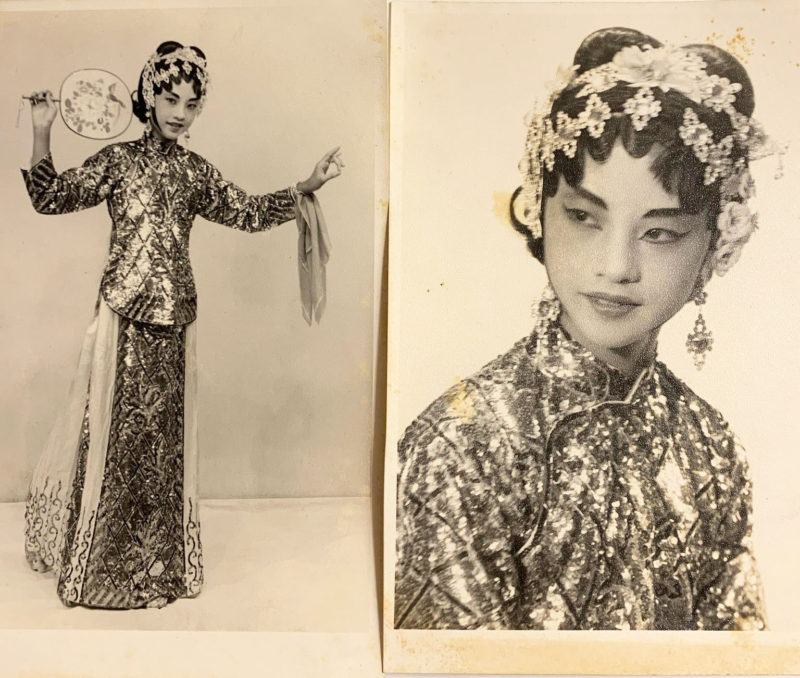
As the December opera season approaches, Ma is increasingly busy. “I have two storage sheds of costumes, set designs and stage furniture – some we’ll reuse and some we’ll have to create anew. I also help some of the local performers practice their roles. It’s a lot of work. This kind of stuff you really have to practice.”
This year’s performances will be held on Saturday, Dec. 7 at 12:30 p.m., Sunday, Dec. 8 at 2 p.m., and Friday, Dec. 13 at 6:45 p.m. The Saturday and Sunday performances will be at the San Francisco Scottish Rite Masonic Center on 19th Avenue, the Friday performance at the San Francisco War Memorial & Performing Arts Center. Tickets are $30, $50, and $100, with proceeds benefitting the myriad services offered by Self-Help for the Elderly.
Contact Josephine Ma to reserve your tickets, josephinem@selfhelpelderly.org or (415) 677-7668, or go online at https://www.selfhelpelderly.org/events/main-calendar/chinese-opera-benefit.


